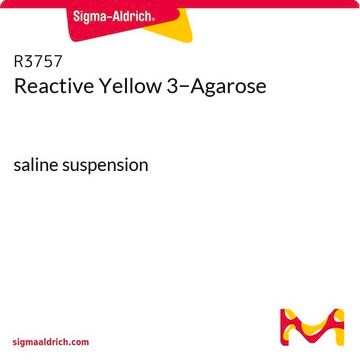201375
Brilliant Yellow
Dye content ≥50 %
Synonym(s):
Direct Yellow 4
About This Item
Recommended Products
form
powder
Quality Level
composition
Dye content, ≥50%
technique(s)
titration: suitable
visual transition interval
6.5-8.0, orange to red-orange
λmax
497 nm at 0.1 N in NaOH
ε (extinction coefficient)
≥37000 at 260-268 nm
≥37000 at 486-494 nm
application(s)
diagnostic assay manufacturing
hematology
histology
storage temp.
room temp
SMILES string
[Na+].[Na+].Oc1ccc(cc1)\N=N\c2ccc(\C=C\c3ccc(cc3S([O-])(=O)=O)\N=N\c4ccc(O)cc4)c(c2)S([O-])(=O)=O
InChI
1S/C26H20N4O8S2.2Na/c31-23-11-7-19(8-12-23)27-29-21-5-3-17(25(15-21)39(33,34)35)1-2-18-4-6-22(16-26(18)40(36,37)38)30-28-20-9-13-24(32)14-10-20;;/h1-16,31-32H,(H,33,34,35)(H,36,37,38);;/q;2*+1/p-2/b2-1+,29-27+,30-28+;;
InChI key
YLDIUICHQPKMNH-MAPAHAHLSA-L
Looking for similar products? Visit Product Comparison Guide
General description
Application
Storage Class Code
11 - Combustible Solids
WGK
WGK 3
Flash Point(F)
Not applicable
Flash Point(C)
Not applicable
Personal Protective Equipment
Certificates of Analysis (COA)
Search for Certificates of Analysis (COA) by entering the products Lot/Batch Number. Lot and Batch Numbers can be found on a product’s label following the words ‘Lot’ or ‘Batch’.
Already Own This Product?
Find documentation for the products that you have recently purchased in the Document Library.
Customers Also Viewed
Our team of scientists has experience in all areas of research including Life Science, Material Science, Chemical Synthesis, Chromatography, Analytical and many others.
Contact Technical Service










